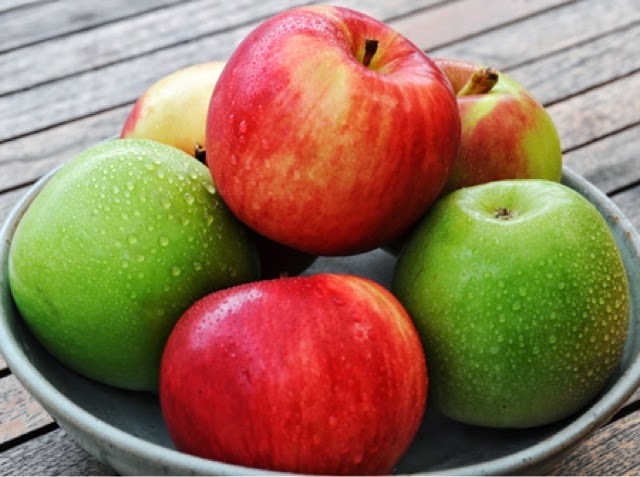Eating fresh fruits and vegetables is an important part of a healthy diet. However, many of our fresh crops are exposed to toxic pesticide overload! Pesticides are used to control, destroy, repel and even attack pests. In the US, we use approximately one billion pounds of pesticides every year. Each individual here consumes approximately three pounds of the billion. There are about 107 ingredients in pesticides identified as carcinogens, nerve toxins and poisons. These chemicals can build up in our body and cause major health concerns such as disruptions in our nervous system, endocrine system, and increase risk of cancers.
Even with budgets constraints, it’s a wise idea to choose organic produce whenever possible. Environmental Working Group’s (EWG) shopper’s guide can be very handy! The EWG just released their 2014 Shopper’s Guide to Pesticides in Produce in which they outline the Dirty Dozen Plus and Clean Fifteen. This guide helps you shop smart by highlighting the dirtiest and cleanest conventionally grown fruits and vegetables at your grocery store. Rule of Thumb —the dirtier the item, the more you should purchase an organic version.
The Dirty Dozen
These fruits and vegetables have the most pesticide contamination and residue. Buy these organic since they are tainted with toxic and hazardous pesticides that Do Not come off even with the most adequate washing, soaking or peeling.
1. Apples
2. Strawberries
3. Grapes
4. Celery
5. Peaches
6. Spinach
7. Sweet Bell Peppers
8. Cucumbers
9. Imported Snap Peas
10. Potatoes
11. Hot Peppers
12. Kale & Collard Greens
The Clean Fifteen
[youtube https://www.youtube.com/watch?v=BfNQGd9BTK0&w=640&h=360]
These crops have the least amount of pesticide contamination so there’s really no need to splurge on organics.
1. Avocados
2. Sweet Corn
3. Pineapples
4. Cabbage
5. Sweet Peas / Frozen
6. Onions
7. Asparagus
8. Mangoes
9. Papayas
10. Kiwi
11. Eggplant
12. Grapefruit
13. Cantaloup
14. Cauliflower
15. Sweet Potato
The EWG’s guide allows shoppers to understand which fruits and vegetables have the highest pesticide load and which ones are generally clean and safe. If you don’t have the budget to purchase much organic produce, you can still reduce your pesticide overload. For example, if you and your family eat lots of apples or spinach, you may want to purchase these items organic to avoid the pesticide load on your body from frequent consumption. But if you rarely eat cucumbers, buying conventional ones should be fine. Also, all of the fruits and vegetables on the Clean Fifteen list score low in pesticides so choose these items conventionally as needed. The extended 2014 Shopper’s Guide can be found on the EWG’s website.



